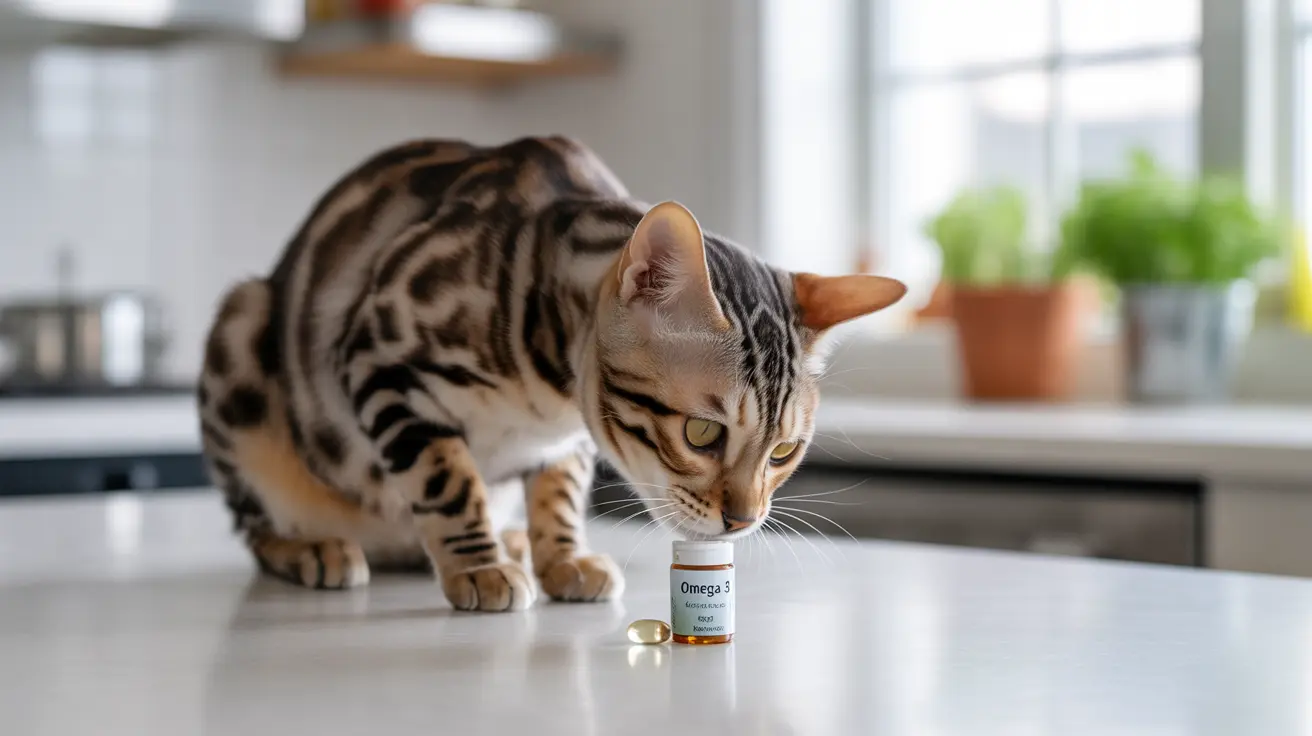For cat owners seeking to provide the best nutrition for their feline companions, understanding essential fatty acids is crucial. These vital nutrients play fundamental roles in your cat's health, from maintaining a glossy coat to supporting brain function and managing inflammation. Let's explore why these nutrients are so important and how to ensure your cat gets the right amounts.
Unlike many other animals, cats have unique dietary requirements when it comes to fatty acids. As obligate carnivores, they need specific types of fatty acids that can only be found in animal-based sources, making their nutritional needs particularly important to understand.
Understanding Essential Fatty Acids in Cats
Essential fatty acids (EFAs) are nutrients that cats cannot produce on their own and must obtain through their diet. The two main categories are omega-3 and omega-6 fatty acids, each serving distinct biological functions. Cats specifically require arachidonic acid, an omega-6 fatty acid found only in animal tissues, making them different from dogs and other pets.
The Critical Role of Omega-3 and Omega-6 Fatty Acids
Omega-3 fatty acids, particularly EPA and DHA, support brain development, reduce inflammation, and promote healthy vision. These are predominantly found in fish oils and marine sources. Omega-6 fatty acids, including linoleic acid and arachidonic acid, are vital for skin health, coat quality, and reproductive function.
Sources of Essential Fatty Acids for Cats
The best sources of essential fatty acids for cats come from animal-based products. Fish oil, particularly from cold-water fish like salmon and sardines, provides excellent omega-3 fatty acids. For omega-6 fatty acids, poultry fat and animal tissues are primary sources. Many high-quality commercial cat foods now include these essential nutrients in their formulations.
Signs of Fatty Acid Deficiency
Cats lacking sufficient essential fatty acids may show various symptoms, including:
- Dry, dull coat
- Excessive shedding
- Skin problems
- Slow wound healing
- Reproductive issues
- Developmental concerns in kittens
Supplementation and Proper Dosage
While many commercial cat foods contain adequate fatty acids, some cats may benefit from supplementation. This is particularly true for cats with specific health conditions like arthritis, skin problems, or inflammatory conditions. However, it's crucial to consult with a veterinarian before starting any supplementation program.
Frequently Asked Questions
What are the essential fatty acids for cats and how do they benefit their health?
Essential fatty acids for cats include omega-3 (EPA and DHA) and omega-6 (arachidonic acid and linoleic acid) fatty acids. They benefit cats by supporting brain function, maintaining skin and coat health, reducing inflammation, and promoting proper development in kittens.
How can I ensure my cat gets enough omega-3 fatty acids in their diet?
Feed your cat high-quality commercial food that lists fish oil or marine sources in the ingredients. You can also consider fish oil supplements under veterinary guidance. Wet foods often contain higher levels of omega-3s than dry foods.
What are the symptoms of omega-3 and omega-6 deficiency in cats?
Common symptoms include dry, flaky skin, a dull coat, excessive shedding, slow wound healing, and potential reproductive issues. In kittens, deficiencies can affect brain and visual development.
Can I give my cat fish oil supplements, and if so, what are the benefits?
Yes, fish oil supplements can be beneficial for cats, particularly for those with inflammatory conditions, joint problems, or skin issues. However, always consult your veterinarian for proper dosing and to ensure the supplement is appropriate for your cat.
How do I choose the right cat food to meet my cat's essential fatty acid needs?
Look for cat foods that specifically list omega-3 and omega-6 fatty acid sources in their ingredients. Choose products from reputable manufacturers that meet AAFCO standards and contain quality protein sources along with fish oil or other marine-based ingredients.
Conclusion
Essential fatty acids play a vital role in feline health and well-being. By understanding their importance and ensuring proper intake through diet or supplementation, you can help your cat maintain optimal health throughout their life. Remember to always consult with your veterinarian about your cat's specific nutritional needs, especially when considering supplements or dietary changes.






